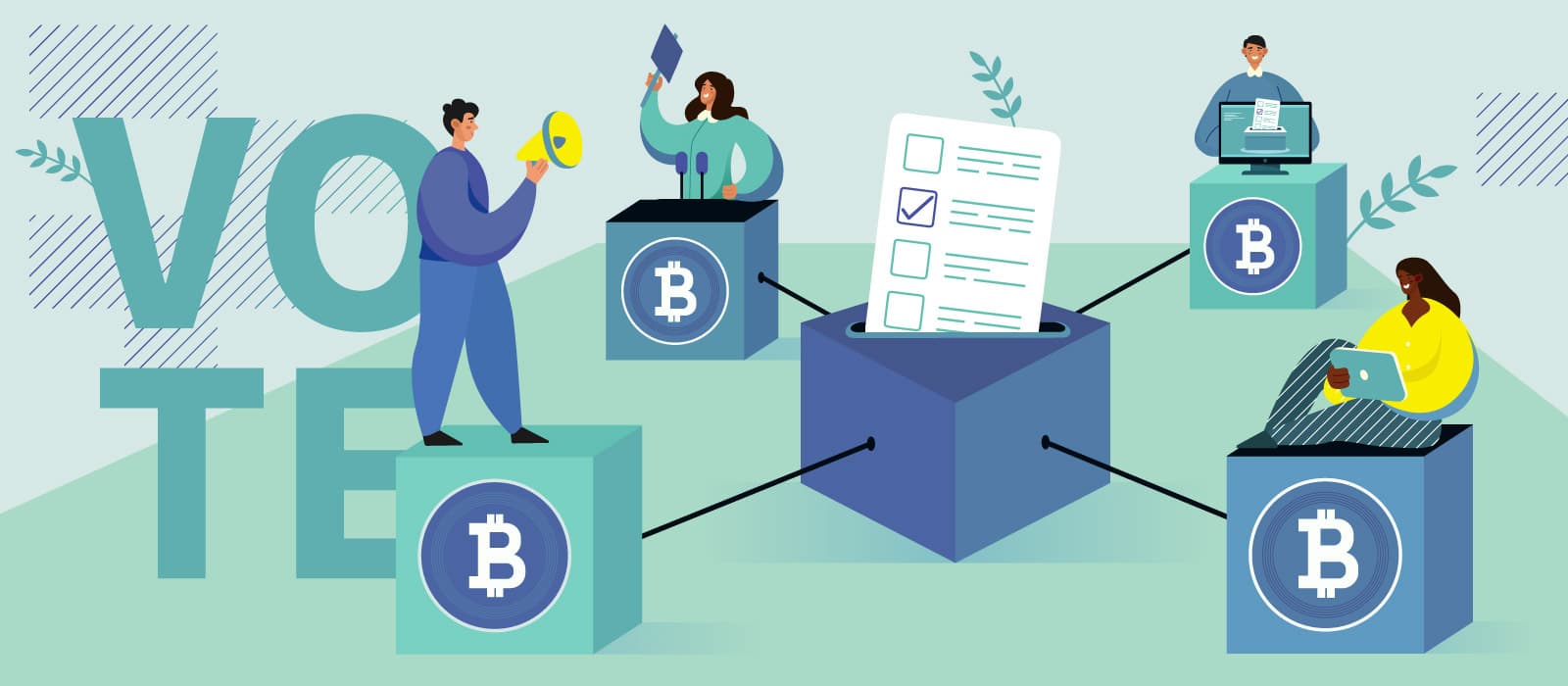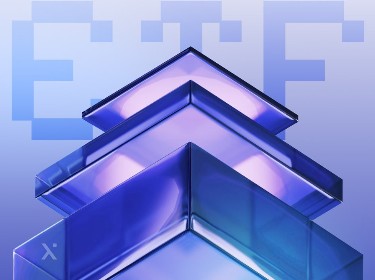Democracies around the world are grappling with difficult questions about what the future holds for elections. Should we continue trusting central authorities to manage them? Or should we turn to new technological solutions to decentralize voting, thereby preventing electoral fraud and similar attempts to violate democratic processes? Blockchain offers some viable answers, but it also comes with its own set of challenges.
Blockchain is becoming an indispensable technology, with so many diverse use cases. While peer-to-peer applications such as file sharing and music streaming have been around since the days the Internet first became integral to our lives, their use for secure and immutable transactions only dates back to 2008. Later, with the rise of Bitcoin, people and organizations have become more aware of the benefits that blockchain technology provides.
One of the newest yet most promising blockchain applications is in the domain of voting systems. In the natural course of technological developments, e-voting will eventually become the norm. E-voting will improve the election process by making it faster, simpler, and cheaper while increasing voter turnouts and supporting more effective democracies. According to many experts in the field, e-voting requires revolutionary security systems. Blockchain can offer just that, with its decentralized nature also helping to prevent voter fraud.
Read on to find out about all the benefits of blockchain technology for voting systems, the associated challenges, and the ways blockchain serves voters. You will also learn about how blockchain could integrate into existing voting systems, the new types of voting systems, and the countries currently putting blockchain voting into practice.
Challenges of modern election systems
Elections are vital to modern democratic systems – they determine a country’s future. Nevertheless, as elections become a worldwide matter of concern on a two to four-year recurring cycle, trust in democracy is declining. A fraudulent electoral system is a problem faced by even the most advanced democracies, such as the US or Japan.
Paralleling the evolution of the election systems, ways to breach these systems have also adapted themselves and become more sophisticated. Now, more than ever in the history of humankind, we need a better way to register for voting, to cast votes, and to count them. The biggest election system flaws that need addressing right now are election manipulation, hacking of electronic voting machines, booth capturing, and vote-rigging.
An example of a better voting system
![]()
Blockchain is a distributed database that records the network transactions and organizes them into a hierarchical chain of blocks. The integrity of each block in the chain is enforced by sophisticated cryptography algorithms. The chain of blocks is created and maintained by a peer-to-peer network. New blocks are committed to the global blockchain by the participants of the peer-to-peer network after the successful completion of the decentralized consensus procedure.
Blockchains offer a versatile method for solving the election system issues by providing an efficient technique for block formation and sealing (voting), data collection (counting), and result declaration while ensuring security and privacy.
The ideal blockchain voting system is one based on a public ledger, similar to that used for Bitcoin and Ethereum. A voter would create a voting wallet with their credentials and receive an authenticated and tamper-proof personal ID. The identity verification would be done by an automated system that assigns a unique signature for each voter.
Voting on the blockchain can be done by anonymously transferring the token from the voter’s to the candidate’s election wallet. Voting could be done regardless of the geographic location of the voter. Voting using blockchain preserves anonymity while providing tools for open public inspection and maintaining transparency.
Find out how business leaders can already digitize voting and decision making with this blockchain-powered app!
Why use blockchain for voting?
Blockchain enables a smart, secure, and efficient election system. The technology encompasses almost all aspects of an election, from registration of voters to verification of voter identity, ballot casting, and vote counting.
In blockchains, the information is stored in a chain of ordered blocks validated by network participants. A verified record of transactions keeps the data secure and doesn’t allow its modification. The system holds a fully auditable history of all transactions.
The most significant benefit of voting using blockchain is that it makes it much more difficult to manipulate elections: it enables multiple authorities to validate the information. With every vote having to be inspected by several independent validators, elections are harder to rig.
In a voting system that uses permissioned blockchain, the validators are known to the voters. The validators could include party representatives, a random pool of other voters, and independent monitoring organizations. Such an arrangement would deliver results untainted by fraud and solve the core problem besetting modern centralized voting systems.
What are the challenges of blockchain voting?
Despite the many benefits blockchain brings to voting, there is a lot of skepticism about this model. The biggest doubt concerns accessibility.
A system for voting on the blockchain requires voters to have a digital device, such as a mobile phone or PC, and internet access. Unfortunately, these are not privileges enjoyed by every citizen. In addition, many state and local election officials have to manage with limited access to IT equipment, which further hinders the successful rollout of the blockchain voting system.
Even if blockchain voting solves many issues thanks to its decentralization of the vote validation mechanism, the system cannot prevent every possible type of election fraud. The validator network can check the technical validity of a vote, prevent double-counting, and ensure that votes are cast from an authorized device – but it is difficult for validators to check whether votes come from a genuine user. No one can guarantee that a device from which a vote is cast is malware-free.
Besides accessibility and cybersecurity, voting outside the traditional election booth is potentially exposed to another type of election fraud – vote-buying. The success of vote-buying depends on one’s ability to prove that a vote went to the right candidate. The risk is that blockchain-based voting is likely to make this easier than it is using current systems.
How does blockchain integrate into the current elections infrastructure?
![]()
Electronic voting promises high quality and precise results in line with voter expectations. Historically, many attempts have been made to integrate IT systems into elections. For example, Direct Recording Electronic (DRE) voting systems have been widely accepted as viable. DRE works like conventional voting, but instead of a ballot paper, the voter gets a token to use for voting on a computer inside the voting booth. The DRE’s success lies in the system’s usability – voters find it easy to understand. However, DRE has not been accepted by cybersecurity experts.
Blockchain technology promises anonymity, privacy, and proof of data integrity. To prove their worth as ideal solutions for e-voting systems, blockchains will first have to be implemented on a smaller scale, in order to tackle the security issues. All the signs point to blockchains making advances by building on systems such as DRE.
The new type of voting system for the 21st century
Many companies are already working towards bringing blockchain to the mass-market. A notable example is Horizon State, which is developing a blockchain-based solution that will bring technology and democracy closer together. The company’s secure digital ballot box is a cost-effective and smart solution that aims to address the procedural challenges of voting. Voters use the decision tokens (HST) to vote from their blockchain-connected smartphones or computers. A system like this makes voting more efficient and encourages participation.
Systems similar to Horizon State’s are promising to address the increasing concerns around voting apathy. Regardless of the reason for not casting a vote, providing an easy and secure method to vote from a smartphone or computer will help boost the number of voters. At the same time, a blockchain-based voting system can help bring the costs of elections down.
A true democracy
The main reason for installing representatives in governments and parliaments is the impossibility of directly involving every citizen in decision-making. The representative system of (for example) senators and assembly members creates an indirect democracy. Blockchain, on the other hand, is fostering a direct and true democracy. In such a system, every person would be able to participate in decision-making and the setting of policies, rather than relying on a representative.
Direct democratic systems, where most decisions are in the hands of the people, would require a complete restructuring of the way we conduct political elections. Even though we are far away from such a system, voting on blockchain can still be used for making business decisions, polling, building a census, and more. Blockchain can engage voters and manage elections and will thus be crucial to the future of democratic societies. The technology produces transparent outcomes and encourages people to be active in their communities.
The value of blockchain for voters
Even the most modern voting systems still look the same as they did in the last century. This is mostly due to security and privacy requirements. Voters are obliged to cast their votes at predefined physical locations. In a world where almost everything can be done through online channels, why not vote the same way?
Despite many attempts to stage online elections, little of significance has resulted. This is mainly due to the underlying gaps in cybersecurity. Blockchain, on the other hand, reduces the problems associated with online voting and brings voters many additional advantages. Being able to cast a vote from anywhere in the world is just one of them.
Blockchain voting systems protect voter privacy. The votes are cast without revealing the voter’s identity or political preferences. At the same time, the election officials can count the votes with certainty since each vote corresponds to an existing ID: tampering is almost impossible.
Analyzing the benefits of blockchain voting
![]()
In-person voting is the most popular voting method. This may involve either paper ballots or electronic voting. In the US, for example, electronic voting involves various machines with touch screens or paper ballot scanners. In addition to in-person voting, there are options for absentee ballots and vote-in mail which allow voters to cast their ballot without being present at the local voting site. Absentee ballots have enabled voting to function smoothly during the COVID-19 pandemic.
The traditional voting methods involving electronic machines and post balloting have certain drawbacks in terms of security, transparency and accountability, fraud, and privacy. To each of these issues, a blockchain-based voting system can offer a solution.
Security
Electronic voting machines are prone to hacks and various system failures. These voting systems also raise concerns about election integrity due to their poor design. Blockchain can significantly improve the security of electronic voting machines and support the system for online voting. Blockchains enable secure voting across a range of devices such as smartphones and computers.
Transparency and accountability
The conventional election systems lack transparency as they are closed to public inspection. They are therefore vulnerable to rigging. Blockchain-based systems, on the other hand, enable votes to be verified. Data, which cannot be altered, is stored and timestamped in the decentralized database. Blockchains are inherently transparent and accountable.
Fraud
Whether deliberate or accidental, the current voting systems present opportunities to change, lose, or incorrectly label votes. Election fraud is one of the biggest threats to democracies around the globe. Fortunately, blockchains have the potential to prevent many types of election fraud. Their decentralized nature distributes the responsibilities across many independent nodes, making collusion impossible. In a typical blockchain voting system, there are administrator nodes that manage elections, validator nodes that confirm votes and also counting nodes. Independent validation and consensus algorithms for keeping the vote records make the system tamper-evident.
Privacy
While absentee voting and mail-in ballot systems give voters the freedom to vote remotely, they also pose a threat to voters’ privacy. What’s more, these methods increase the likelihood of changed or lost ballots. Blockchain offers a privacy protection mechanism through, for example, maintaining the votes and the voter data in isolated portions of the system. Mechanisms such as Zero-Knowledge Proofs make vote declaration possible without revealing any information about the individual choices.
Already thinking about hiring a blockchain development team? Here are 10 facts to help you find the perfect developer
Real-world uses of blockchain-enabled voting systems
![]()
When it comes to blockchain and voting, governments still have their doubts. Despite its many benefits, fully-fledged blockchain voting has not yet been implemented for national elections. Nevertheless, some governments have taken the initiative and begun to involve blockchain in other elections and referendums. Here are some examples.
Sierra Leone
In 2018, a large-scale media campaign claimed that Sierra Leone had held its elections using blockchain for voting. While this later proved to be fake news, it was true that blockchains had been involved, marking a significant step towards the integration of blockchains in election systems.
Swiss blockchain voting company Agora acted as an international observer in the process, providing an independent count of ballots to serve as the benchmark against which the real results could be compared. Private blockchain for voting was used to record cast votes. This was the first time the blockchain had been used to audit national elections.
Russia
In June 2019 the Moscow authorities oversaw the pilot of a blockchain voting system. The project was supported by the Moscow City Election Commission and the Moscow Department of Information Technology (DIT). The system was implemented using the Exonum enterprise blockchain platform from Bitfury. The voters were given a chance either to vote using conventional methods (by turning up at the ballot site) or to vote online using the blockchain system. The ballot concerned the amendments to the Constitution of the Russian Federation.
USA (State of West Virginia)
West Virginia implemented a mobile voting application that allows registered voters to receive, vote, and send their ballots. The application is based on blockchain technology that safely stores submitted ballots until election night. The developed system is the first of its kind in the history of the United States and the first in the world to enable a federal election to be conducted on a blockchain. The application has a strict registration and voter validation process that incorporates biometric facial recognition and thumbprint scanning.
Switzerland
In 2018, the Swiss city of Zug completed the nation’s first local blockchain-based test vote. Citizens voted through a smartphone application. Each voter used their electronic IDs, which the city administration had assigned to them in a previous project.
The test project will evaluate the voting process for its voter privacy and will also make sure that the results are verifiable, unalterable, and easy to understand.
Conclusion
Modern voting systems tend towards a centralized approach to the registration, casting, and counting of votes. As history has shown, centralized system hacks can have catastrophic consequences. The decentralized approach, on the other hand, has brought many benefits to a number of areas. But decentralization alone can’t solve all the issues with election systems. New systems must be online/mobile and have the highest security measures for preserving anonymity while also providing the necessary transparency.
Blockchain for voting represents an excellent new technology that can address these requirements. Blockchains can benefit voting systems at all stages including electoral registration, vote storage, vote counting, and the publication of the results. At any of these stages, blockchain technology helps prevent fraud by requiring the prearranged consensus of the selected validation parties.
Voting blockchain systems allow for high voting integrity, leaving minimal room for fraud or manipulation during the election. Overall, they could pave the way for a voting process that is fairer, more transparent, and, essentially, more democratic.
Despite the considerable research that has been devoted to building scalable blockchains for voting, they still haven’t been used in national elections. Versions are used in smaller elections, for limited purposes.
Developing a blockchain-based system requires skills and experience if the most benefit is to be extracted from the technology. Here at PixelPlex, we specialize in developing public and private blockchains for diverse applications. With our proven success in their implementation, we have established ourselves as serious players in this field.




